2021 Fall

The Legacy of Dean William Gardner
Gardner served as dean of the College of Education from 1977 to 1991.
He was once described as an educational activist in a bow tie. It’s a fairly apt portrait of William Earl “Bill” Gardner, who balanced professionalism with the determination and drive to institute change wherever he found it necessary.
Gardner, who died on February 16, 2020, at the age of 91, served as dean of the College of Education from 1977 to 1991. But his influence extends far beyond the University campus and its extended community. He was also a recognized national and international leader in education.
During his tenure as dean, he led important transformations in the work of the college in the recruitment and preparation of teachers; the development of research partnerships to improve schools; and national and international strategies to improve the preparation, standards, and practices of teaching, and the creation of the college’s development program.
“Dean Gardner strongly believed, based upon sound and extensive evidence, that good and committed teachers are the key to better student learning and more effective schools,” says Robert Bruininks, former dean of the college and University president.
Indeed, when asked about his most noteworthy achievements as dean, Gardner had said, “I think that the conversion of the teacher education programs from four to five years would be the activity of which I am most proud. The proposal…was stimulated by the need to differentiate the college’s teacher licensure programs from other colleges and universities in Minnesota.” He went on to say that the fifth-year programs had several advantages: they are attractive to capable students who are willing to make a substantial commitment to teaching, they enable students to spend a long time in school internships to increase their experience, and they are popular with officials in the schools that hire new teachers.
Gardner was born October 11, 1928, in Hopkins, Minnesota. He earned BS and MA degrees in education/social sciences and a PHD in education/American history, all from the University of Minnesota. His professional life focused on learning, teaching, and administering. He taught at schools in Balaton, Rockford, and New Ulm before teaching for seven years at the University of Minnesota High School, during which time he received his masters and doctoral degrees. He joined the College of Education faculty in 1961. Prior to becoming dean, he taught social studies and served as a Department of Curriculum and Instruction chair and assistant and associate dean.
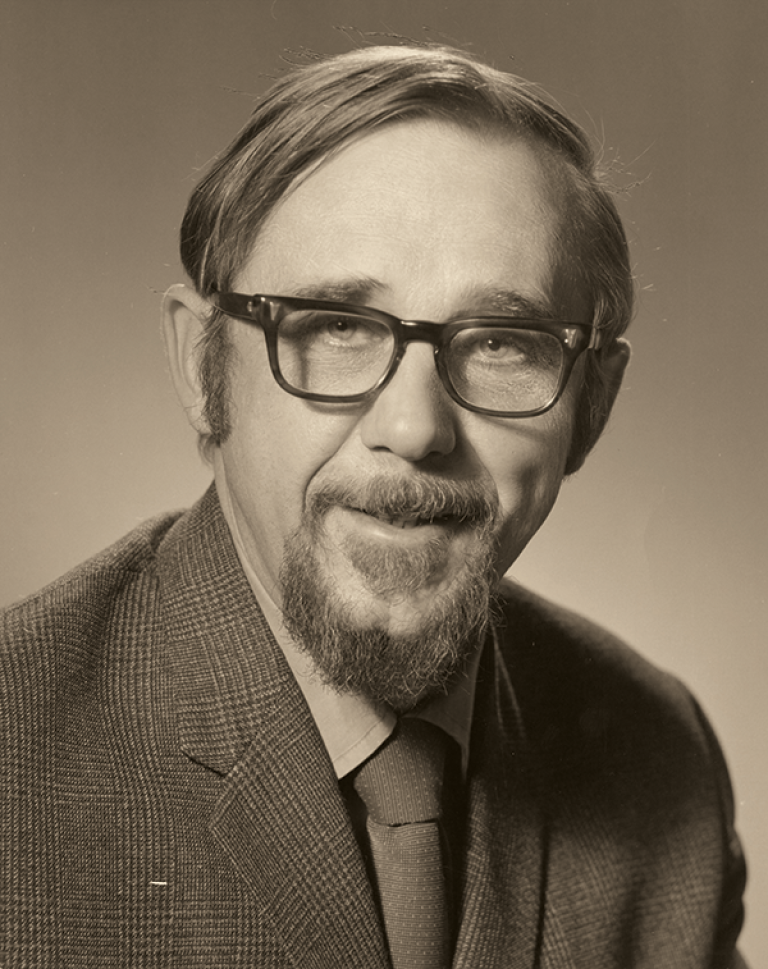
Education meant a lot to Gardner. Even after he stepped down as dean, he always carried in his wallet a partial quote from Lee Iacocca that he handwrote: “In a ‘truly’ [completely] rational society, the best of us would be teachers, and the rest would have to settle for something less…” The rest of the quote, assumes Gardner’s wife and partner, Crystal Meriwether, was lost on the way. It reads “…because passing civilization along from one generation to the next ought to be the highest honor and the highest responsibility anyone could have.”
Education activist
Gardner’s tenure as dean were tumultuous years for teacher education and education in general as attacks on their quality were regularly released. Gardner was an education activist during those years as a critic, reformer, and supporter of the National Council for Accreditation of Teacher Education (NCATE), which had been created in 1954 to evaluate programs across the nation that met national standards for quality. As the University of Minnesota was a member of the national organization of public and land grant universities (now APLU), Gardner was engaged in discussions about the value of national accreditation that arose in 1976 when APLU created a group to review its concerns about NCATE.
At a time when teacher education accreditation was under assault, he led an effort that “righted” the enterprise and helped shape NCATE for the following two decades. Gardner helped to find balance between the interests of institutions and those of several dozen subject matter groups with often different agendas.
“His great skill in bringing diverse interests to a common agenda and doing it in ways that everyone celebrated was widely embraced,” says David Imig and Donna Gollnick, former leaders of the National Council for the Accreditation of Teacher Education.
Recognition of his leadership led to his nomination and election to chair the American Association of Colleges for Teacher Education (AACTE) for 1987-88. During his term, Gardner helped to strengthen AACTE with the elementary-secondary community, leading to a series of ongoing conversations about ways that schools of education could better relate to local school districts and schools. He also initiated efforts to extend the reach of AACTE to the full community of schools and colleges of education and was a constant source for wisdom and advice for AACTE during his full term as dean at Minnesota and beyond. Gardner’s footprint also extended internationally to the International Council for the Education of Teachers (ICET) during a critical time in that organization’s history.
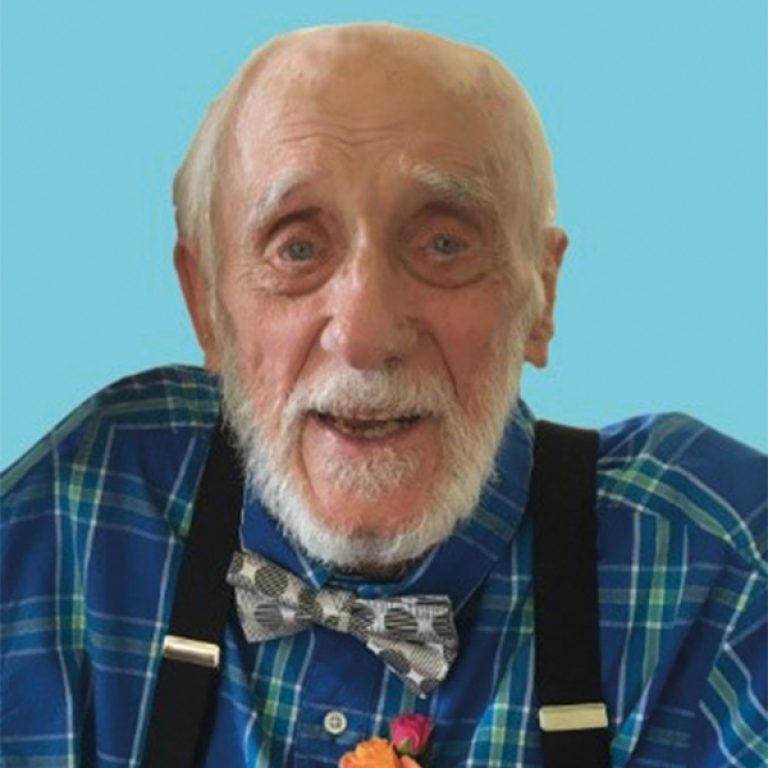
You are invited…
A Legacy Reception to celebrate the professional accomplishments and memory of Dean William E. Gardner will be held at Burton Hall in the Atrium on Sunday, October 17, from 1 to 3 p.m. with a program at 2 p.m. To RSVP, visit z.umn.edu/71ix.
“He was a force in ICET and helped to influence its direction in the 1970s and 80s,” says Imig. “He was well respected internationally and ministers of education and deans of education from many countries sought his counsel on matters pertaining to educator preparation.”
Relationships established within ICET enabled Gardner to later lead an outreach to the prestigious national universities in Japan which was the foundation for efforts that led in 1990 to the first Japan-U.S. Teacher Education Consortium (JUSTEC), which continues today.
Gardner was a strong leader in building the college’s international connections, education programs, and partnerships. Along with Japan, he forged agreements with universities in China, Israel, England, and Thailand, including opportunities for study involving faculty and student partnerships and exchanges.
“These efforts increased the number of international students in graduate and professional programs and helped to foster many longstanding, joint research partnerships,” says Bruininks.
Gardner built a particularly special relationship with Sukhothai Thammathirat Open University (STOU) in Thailand after it hosted an ICET event in 1984. He attended the event, chairing a session on the international dimension of education. “The university, school educators, and teachers learned from him the importance of international and global education, which during that time was a very new concept,” says Professor Wichit Srisa-an, STOU founding president and U of M PhD alum.
Gardner also was the first to promote collaboration on doctoral studies between the two institutions. “STOU was very fortunate to receive the doctoral scholarships and study visits to the University of Minnesota,” says Professor Somwung Pitiyanuwat, also a U of M alum. “Professor Gardner will be long remembered among Thai students, friends, and alumni of the University of Minnesota.”
Enter CAREI
Gardner’s leadership in education extended to enhancing the college’s research capacity to improve education and related services more broadly for children, youth, and adults. This commitment was reflected in the design and support of college-wide centers, including the Center for Applied Research and Educational Improvement (CAREI) in 1986, still functioning today.
In 1986-87 Gardner convened a group of educators and faculty to design a collaborative venture within the College of Education that would create ongoing interactions between college faculty and school district personnel. It would also provide an overarching structure for four existing outreach units: The Exchange (including the Teacher Center), the Global Education Program, the MN Principals’ Assessment Center, and, at first, the Education Policy Fellowship Program. Ultimately named CAREI, the new center had a three-fold purpose:
- Provide incentives and assistance for cooperative school-based research and policy studies;
- Disseminate new and existing research to educators who could use it to improve practice; and
- Make it easier for schools and the college to connect for assistance, research, and discussion.
Fred Hayen, Director of the Teacher Center, and Lloyd Nielsen, former Mounds View superintendent, served as interim directors for the first year, and 44 districts initially signed on to participate in CAREI. Dr. Jean King, following a national search, was appointed to the directorship of CAREI in the late 1980s.
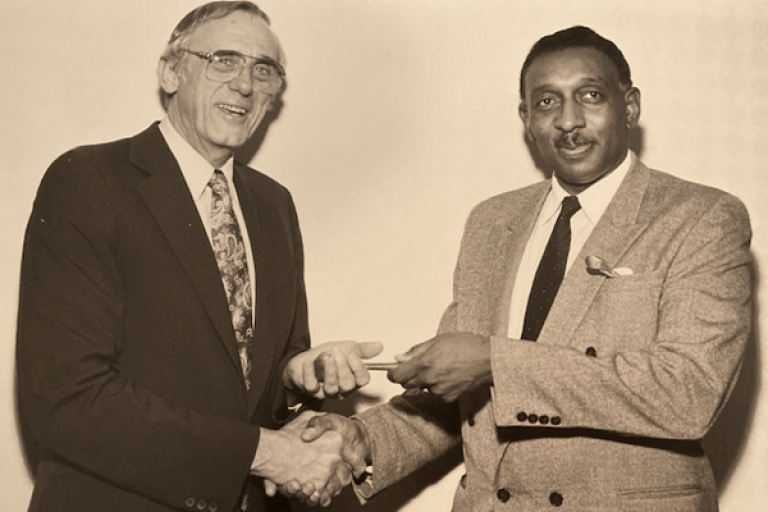
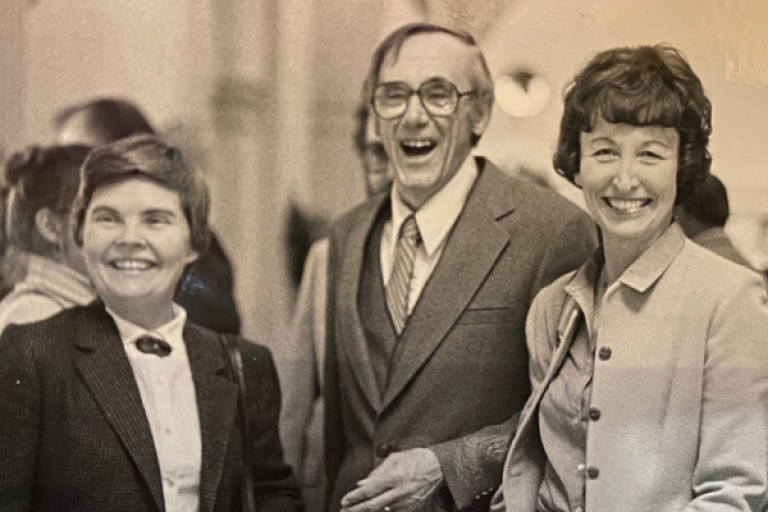
“As the center evolved, it engaged in a variety of activities,” says King. “Some involved getting outside funding to study issues affecting Minnesota’s schools, such as outcome-based education. Others provided research resources to schools to work collaboratively with University faculty.”
For several years, CAREI grants, which were small collaborative research grants, funded research co-engaging a college faculty member with school colleagues. Dissemination of existing research was a consistent priority, including literature searches, technical assistance, professional development, and topical seminars. The CAREI Assembly brought together—and continues to bring together—representatives from member districts twice a year to discuss developing concerns and frame potential research projects. CAREI also provided college faculty assistance in locating research sites.
The fact that CAREI exists 31 years later suggests its viability, and its impact is reflected in its ongoing projects and many research reports archived in the University’s Digital Library collection. In reflecting on her many years as director, King notes that “Bill Gardner was the reason I moved to Minnesota 31 years ago, and for this I am eternally grateful. My mentor at Cornell sent me the job description for the CAREI director position with a note that said, ‘This is the perfect job for you.’ He was right.”
She says Gardner’s vision reflected his respect for school-based practitioners and the importance of meaningful exchange between people who worked in the College of Education and those who worked in Minnesota’s school districts.
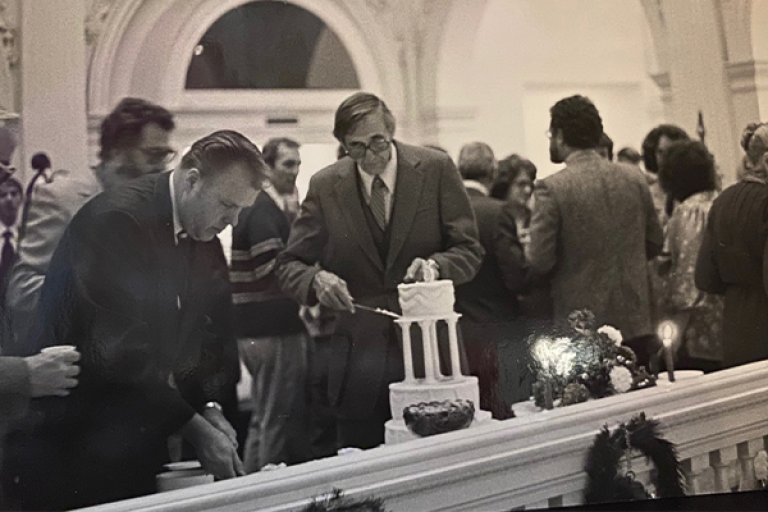
“This was exactly the work I wanted to do, given my commitment to high-quality educational research that might potentially help improve schools,” she says. “CAREI was the college’s collaboration with school administrators and teachers around Minnesota. Dean Gardner understood that, by working together, the college could affect long-term change, a shared goal of this promising partnership. I always enjoyed working with him—the Dean knew how to listen, was kind, and had a sense of humor that routinely helped me through many long meetings. How lucky I was to have been hired as CAREI’s first director!”
Focus on diversity
Dean Gardner’s commitment to improving teaching and schools also recognized the critical importance of increasing the diversity of teachers and educational leaders. One of the most significant expressions of this commitment was the creation of the Common Ground Consortium (CGC) in 1989, with significant collaboration with Dr. Josie Johnson, former University Regent, associate vice president for equity and diversity, and a faculty member in the college. The CGC was a collaboration involving the College of Education and nine Historically Black Colleges and Universities (HBCUs), supported by eight years of continuous funding by the Bush Foundation and the college. The nine HBCUs included Alcorn State University, Elizabeth City State University, Fisk University, Grambling State University, Morgan State University (later replaced by Albany State University), Morris Brown College, Tuskegee University, Wiley College, and Xavier University. Still going strong to this day, CGC admits four to five students each year with scholarship support into graduate leadership programs across the college.
Johnson notes that “the CGC is extraordinarily successful. Its retention and graduation rates for enrolled students is extremely high (above 90 percent) and many graduates attain positions in Minnesota schools and colleges and universities. It forges strong partnerships advancing diversity in educational professions through vibrant partnerships involving nationally recognized HBCUs, the University of Minnesota, and Minnesota school systems.”
Increasing fundraising
A final, very transformative change during Gardner’s term was the strengthening of the college’s development program to increase engagement of graduates and the amount of private fundraising contributions. He hired the college’s first full-time development officer. While dean, funds were donated to support five honorary professorships, the Coffman Scholarship Fund was enhanced to support students in licensure and graduate programs, and increased funds were raised for many other initiatives, including the funding of students with financial need. Gardner planted the seeds of this critical source of private support for the college nearly 35 years ago. As the University completes a major 10-year campaign, the College of Education has raised about $120 million in support of its academic mission, and today manages a $71 million endowment.
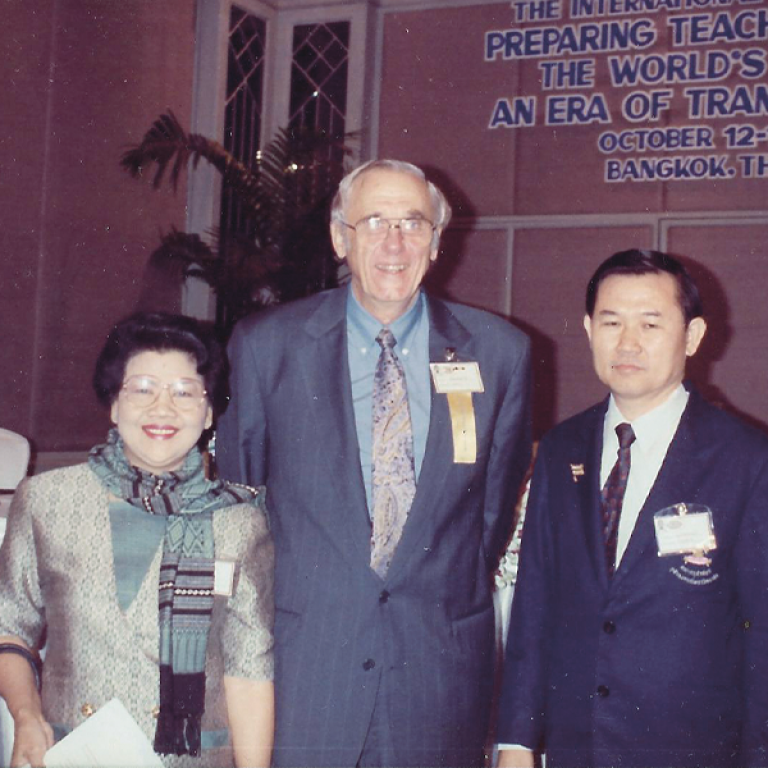
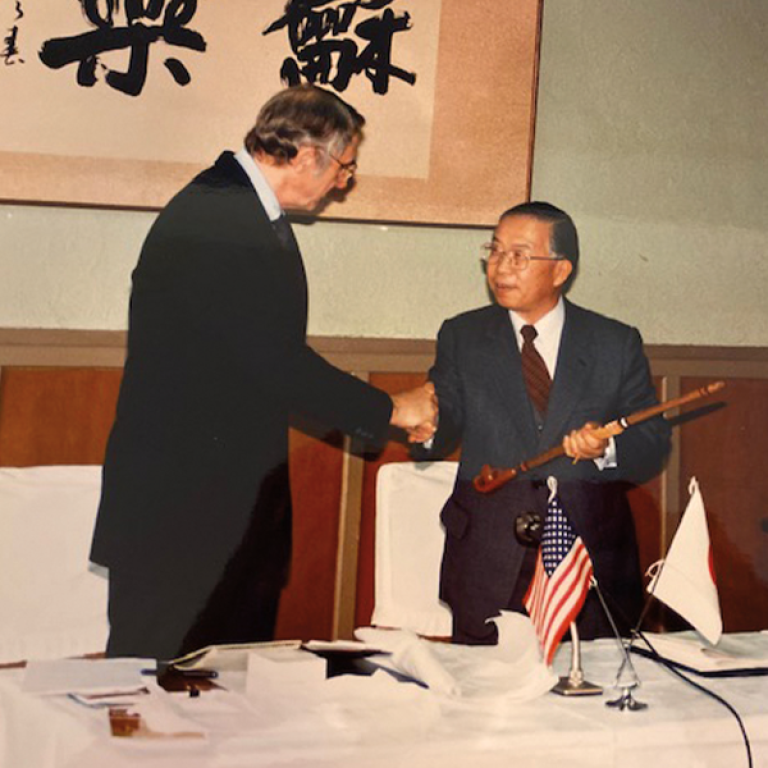
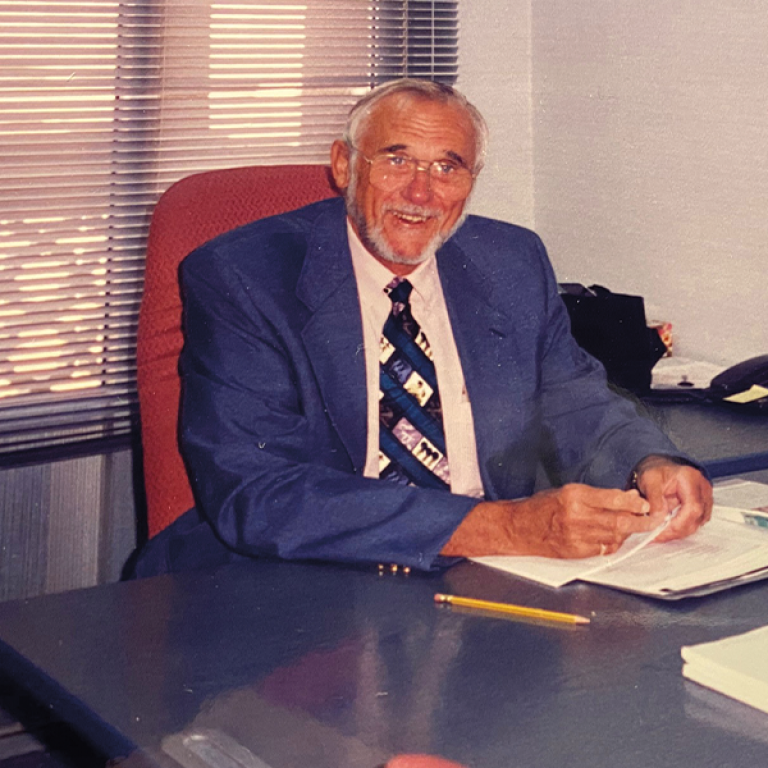
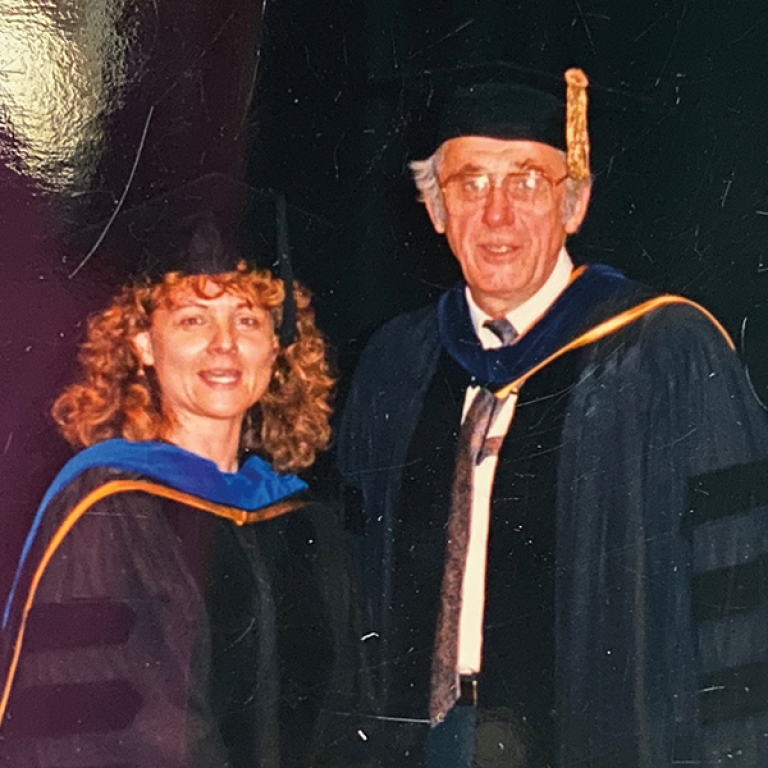
Gardner served as dean of the College of Education for 15 years, following many years of service as a member of the faculty and as assistant and associate dean. It was a transformative period in the life of the college, and he left a lasting legacy of achievements and contributions in his chosen academic home and on his profession. Celebrate his service and consider a contribution to a cause he cherished most of all, the support of students pursuing careers in teaching, especially first-generation students and students of color. Contributions can be made to the William E. Gardner Scholarship, payable to the University of Minnesota Foundation fund #23439, mailed to UMF, PO Box 860266, Minneapolis, MN 55486-0266. Or, give online at give.umn.edu/giveto/gardner.
Photos courtesy of Mary Fenwick, University of MN Libraries, University Archives, Crystal Meriwether
Several friends and colleagues contributed to this tribute: David Imig and Donna Gollnick of the NCATE; Crystal Meriwether (spouse and University graduate); Josie Johnson, Robert Bruininks, Dale Lange, Allen Glenn, and Jean King, (former college and University colleagues).
-Kevin Moe